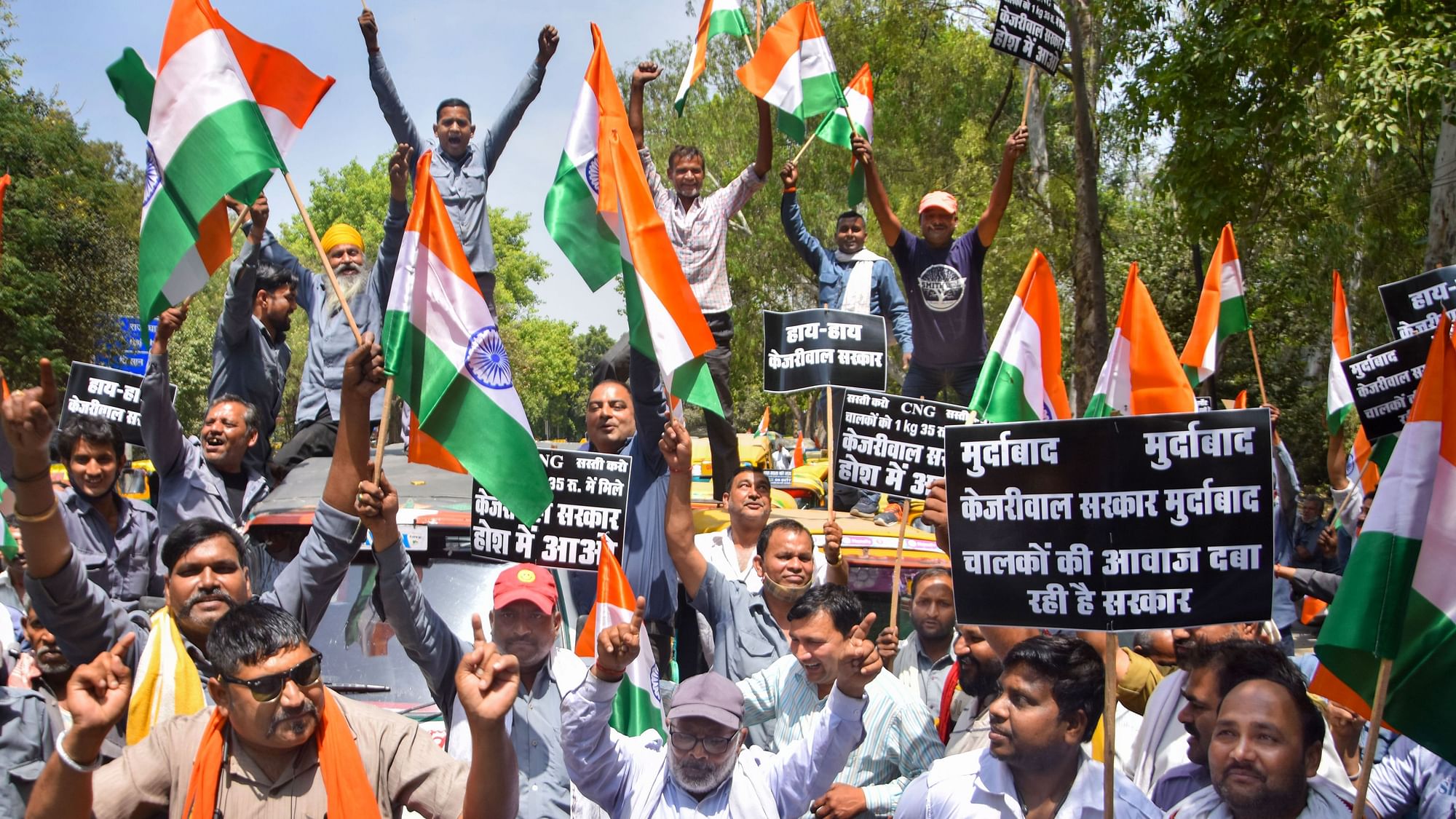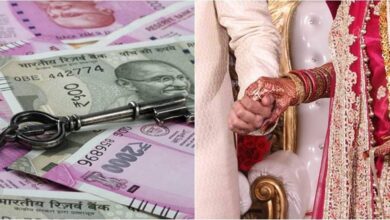18, April: In Delhi, auto, taxi unions go on strike; Ola, Uber see tremendous hike in fares

In Delhi, auto, taxi unions go on strike; Ola, Uber hike fares
In the wake of increased fuel costs, several auto-rickshaw, cab, and taxi unions in the national capital went on strike on Monday, seeking a CNG subsidy and a fee adjustment.
In the wake of increased fuel costs, several auto-rickshaw, cab, and taxi unions in the national capital went on strike on Monday, seeking a CNG subsidy and a fee adjustment.
Later in the day, the Delhi Auto Rickshaw Sangh would organize a demonstration outside Chief Minister Arvind Kejriwal’s house in Civil Lines to stress their demands, according to General Secretary Rajendra Soni.
On Monday morning, city commuters had difficulty finding taxis and vehicles. Even though automobiles were available on the Ola and Uber applications, the fares were exorbitant.

Auto and taxi drivers’ unions have demanded a rate increase and a reduction in CNG pricing to mitigate the impact of rising fuel prices. Despite the Delhi government’s statement that a committee would be formed to discuss a fare revision promptly, they refused to call off their strike.
“Our strike has begun and will last for the rest of the day. CNG has gotten more expensive, and we can no longer afford to lose money. Either a 35-rupee-per-kilogram CNG subsidy should be offered, or tariffs should be increased “Rajendra Soni, the General Secretary of the Delhi Auto Rickshaw Sangh, said PTI. While other unions have announced a one-day strike, the Sarvodaya Driver Association Delhi, which represents taxi aggregator drivers, has announced an “indefinite” strike.
The city’s public transportation system is supplemented by over 90,000 automobiles and over 80,000 registered taxis.
Why Are Delhi Auto Taxi Drivers On Strike? CNG Subsidy, Fare Hike: Why Are Delhi Auto, Taxi Drivers On Strike?

There are about 90,000 automobiles and over 80,000 registered taxis in the national capital. Most taxi and auto unions went on strike on Monday to demand a CNG subsidy and a rate increase.
On Monday, the capital awoke to deserted streets as several auto-rickshaw, cab, and taxi unions in Delhi went on strike in protest of rate hikes. In the face of increased fuel prices, demonstrators, including Ola and Uber cab drivers, are seeking a CNG subsidy and a fee adjustment.
To urge their demands, protestors plan to organize rallies outside Delhi Chief Minister Arvind Kejriwal’s Civil Lines house by the afternoon. Rajendra Soni, the General Secretary of the Delhi Auto Rickshaw Sangh, verified the report.
On Monday morning, city commuters had difficulty finding taxis and vehicles. Passengers attempting to go outside of Delhi’s railway stations had similar challenges. Even though automobiles were available on the Ola and Uber applications, the fares were exorbitant. Auto and taxi drivers’ unions have demanded a rate increase and a reduction in CNG pricing to mitigate the impact of rising fuel prices.
Ratan Kumar, an auto driver in Delhi’s Sukhdev Vihar neighbourhood, claims that the strike is the only way to get the government to listen to his requests and that it will continue until they are satisfied.
“If people do not have access to transportation, they will grumble. There is no other option. The administration has not listened to us; we hope they will listen to commuters’ requests “Kumar explains.
He says that strikes are an issue for both commuters and drivers. “We have to forego a whole day’s earning,” Kumar, a Madhya Pradesh migrant, says.
The city’s public transportation system is supplemented by over 90,000 automobiles and over 80,000 registered taxis. According to sources, most unions have chosen to go on strike for one day before returning to work on Tuesday. However, other organizations, such as the Sarvodaya Driver Association Delhi, which includes members who work for cab aggregators like Ola and Uber, have stated that the strike will be “indefinite.”
The Delhi government has announced the formation of a committee to study fare modification in a timely way. On the other hand, the unions have refused to call a halt to the walkout. “Our strike has begun and will last for the rest of the day. CNG has gotten more expensive, and we can no longer afford to lose money. Either a 35-rupee-per-kilogram CNG subsidy should be provided, or fares should be increased.” Rajendra is the General Secretary of the Delhi Auto Rickshaw Sangh.
Strikes are being called because of rising prices

The strike was called in response to a price increase of Rs 2.5 per kilogram and Rs 4.25 per unit for compressed natural gas (CNG) and piped natural gas (PNG), respectively. Moneycontrol claimed that consumers in Delhi and the NCR would now have to pay Rs 71.61 per kilogram of CNG and Rs 45.86 per unit of PNG. After five straight hikes in March, this is the fourth hike in April and the ninth increase in CNG pricing this year. The Delhi government last increased auto tariffs by 18% in 2019, while taxi fares were last increased in 2013.




